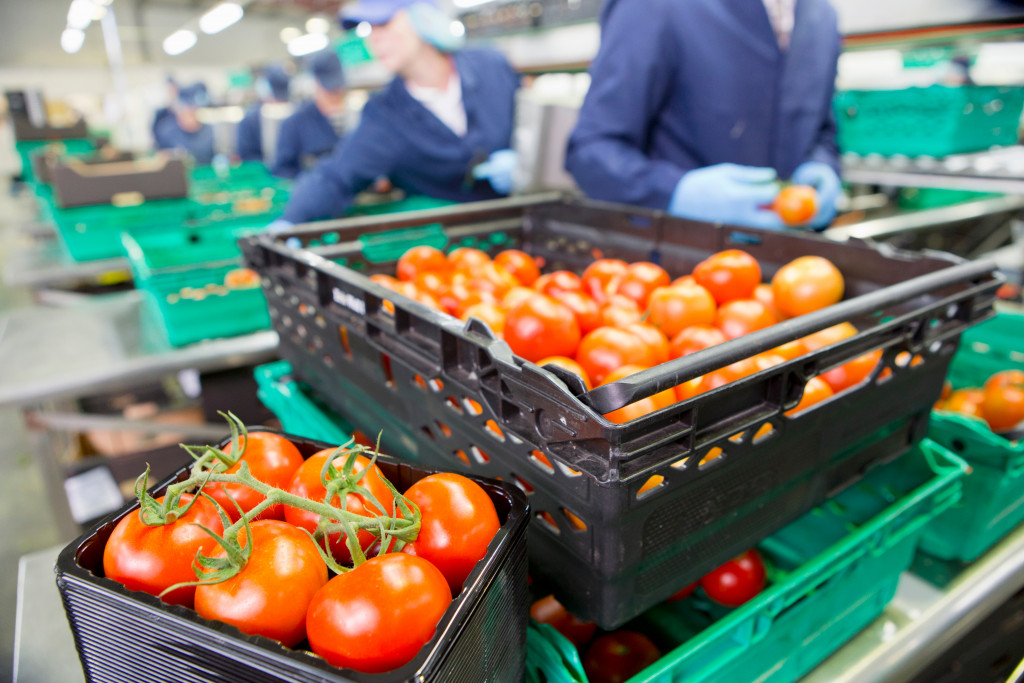As the world keeps developing, so does various industries’ technology. The food and beverage industry is not left out in this case. In fact, this sector has been one of the most active in adopting new technologies. From production to packaging and marketing, the food and beverage industry has quickly taken advantage of any new technology.
So how exactly has technology transformed the food and beverage sector? Let’s take a look at some of the ways:
The use of food-grade machines
While technology has impacted nearly every industry, the food and beverage industry has rapidly embraced new advances. One area where this is evident is in the use of food-grade machines. These machines are designed to meet the stringent safety and quality standards for handling food products.
For example, a food-grade transfer pump machine is often used to move liquids from one container to another. This type of machine is made of stainless steel or other food-safe materials. It is fitted with seals and gaskets that prevent contamination, making transferring liquids much safer.
Automating processes
The F&B industry has long been at the forefront of technological innovation. From early adopters of canning and refrigeration to today’s sophisticated robotic systems, the industry has always looked for ways to automate processes and improve efficiency. Today, robotics plays an increasingly important role in food and beverage production. Robotics can be used for tasks such as sorting, packaging, and labeling. They can also assist with more delicate tasks such as slicing fruits and vegetables.
In addition to reducing labor costs, robotics can also help to improve food safety by reducing the risk of human error. As the technology continues to evolve, even more applications will likely be found for robots in the food and beverage industry.
Improving product quality
Technology has played a significant role in improving the quality of food and beverage products. Food producers can now use computers to track the progress of food items through the production process, ensuring that they meet all quality standards. In addition, new packaging techniques have made it possible to extend the shelf life of many food and beverage products, allowing consumers to enjoy them for longer periods.
And thanks to advances in transportation and storage, foods can now be shipped and stored for longer periods without compromising their quality. All of these improvements have helped to make the food and beverage industry more efficient and effective, providing consumers with quality products that they can enjoy for years to come.
A more efficient supply chain
In the past, the supply chain for food and beverage products was relatively inefficient, with each production stage being carried out separately. This often led to waste and delays, as well as a lack of coordination between different parts of the supply chain. However, new technologies have helped to streamline the food and beverage supply chain, making it more efficient and effective.

For example, RFID tags can now be used to track products throughout the supply chain, from farm to table. This helps to ensure that food is fresh and safe to eat, as well as reducing waste. In addition, new software solutions have been developed to help different parts of the supply chain communicate with each other more effectively. As a result, the food and beverage industry can now provide a more efficient and reliable service to consumers.
Better marketing and branding
Technology has also played a crucial part in helping the food industry to market and brand its products more effectively. Social media platforms such as Facebook and Twitter have given food producers a new way to reach out to consumers and promote their products.
In addition, new marketing techniques such as geotargeting have made it possible to target consumers more effectively, ensuring that they receive relevant information about available products in their area. And thanks to advances in printing and packaging, food producers can now create more eye-catching and appealing products that are sure to stand out on the shelves.
A more sustainable industry
Sustainability is now one of the most vital issues facing the food and beverage industry. With the world’s population set to increase in the coming years, it is more important than ever to ensure that the industry can meet the needs of the future without damaging the environment. Thankfully, technology is helping to keep the industry more sustainable.
For example, new methods of food production such as vertical farming are much more efficient than traditional methods, using less land and water. In addition, new packaging materials and techniques are being developed that can help to reduce food waste. And thanks to the rise of the sharing economy, it is now easier than ever for consumers to access sustainable products and services.
The bottom line
Technology has had a profound impact on the food and beverage industry, helping it to become more efficient, effective, and sustainable. In the coming years, people can expect to see even more advances that will continue to transform the way that the industry operates. Thanks to these advances, the industry will be able to provide consumers with quality products that are more sustainable and easier to access than ever before.

